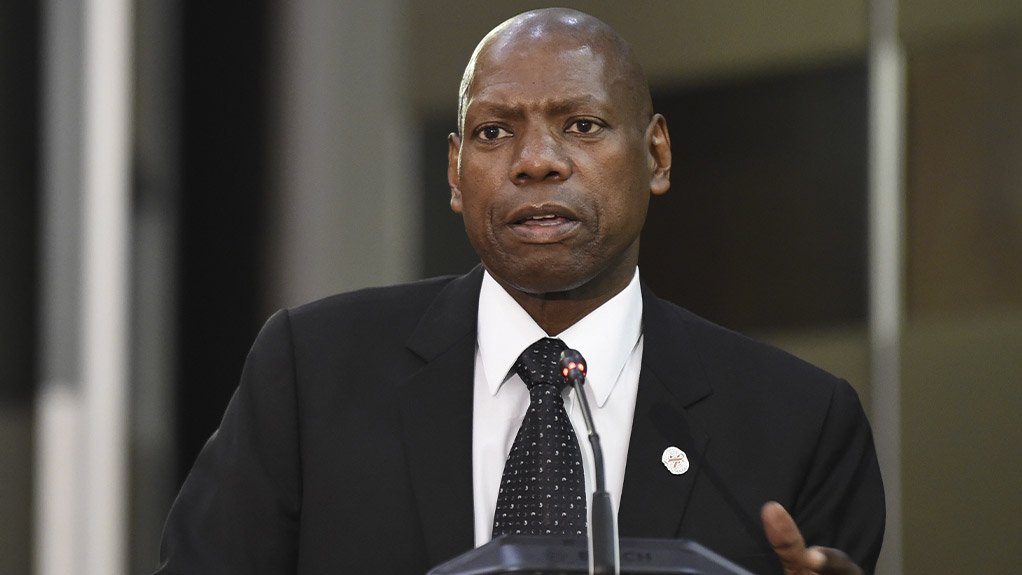/ MEDIA STATEMENT / The content on this page is not written by Polity.org.za, but is supplied by third parties. This content does not constitute news reporting by Polity.org.za.
The Portfolio Committee on Cooperative Governance and Traditional Affairs (COGTA) today called for the management of sound intergovernmental relations to ensure that municipalities honour their agreements with Rand Water and other utilities.
The committee heard that Rand Water’s total water reservoir storage by 14 March was 42.3%, against a target of 60%, and that the entity is hamstrung by municipalities failing to honour their bulk water purchase and debt settlement agreements. Members also heard that the debt for water services owed to Rand Water rose from R1.5 billion in the 2014/15 financial year to over R8 billion in the third quarter of 2024/25 and that the deterioration of Rand Water’s financial health is due to municipalities’ non-payment of debt. The entity also outlined various challenges, including illegal connections, electricity supply challenges, vandalism and encroachment on its infrastructure by informal settlements.
According to the committee, illegal connections, vandalism, tampering with water valves, and damage to other infrastructure need to be seriously discouraged. Municipalities need to use bylaws to stop incursions of human dwellings on water infrastructure servitude, as these actions have not only disrupted the supply of water but have resulted in serious injuries and deaths.
Noting the huge infrastructural decay that leads to non-revenue water losses, the committee urged the water utilities to consider writing off debts associated with such cases. Additionally, partnerships between utilities and municipalities are encouraged to upgrade infrastructure
and improve revenue collection. The committee noted that while it is important to enforce revenue collection for water provided, the indiscriminate cut-off of water supply to errant municipalities is problematic as vulnerable communities suffer. The committee also asked that Rand Water review its tariff structures to ensure that this does not add to the financial burden of communities while still enabling municipalities to function.
The committee also noted that many municipalities fail to honour their debts to utilities because of the state of dysfunctionality, poor governance, and financial mismanagement, which compromises service delivery. It called on the ministers of COGTA, Water and Sanitation and the National Treasury to get actively involved in managing this debt by using inter-governmental framework (IGR) provisions that will ensure compliance before communities suffer service delivery lapses.
Noting all the challenges, the committee still stressed that water utilities need to be supported to remain financially viable and avoid any possibility of being bankrupted that ends with bailouts. However, the culture of payment for services must be encouraged in communities by using flat rates in poor communities, while free basic services remain protected through a sound municipal indigent policy. This, the committee noted, is to ensure that this does not add to the financial burden of communities while ensuring that municipalities can still function.
The committee also condemned malicious compliance whereby municipalities sign the agreements with no intention to honour their debts. It is, however, also unacceptable to starve communities of water supply to force municipalities to sign debt repayment agreements. This, the committee noted, is a human rights issue.
Noting Rand Water’s Special Purpose Vehicle (SPV) model that it is considering to help alleviate debt pressures, committee members asked for more details on how the SPV will be structured and funded and urged that this must not just be an extractive financing model that worsens the existing challenges in municipalities. The committee also called for transparency around the SPV.
The committee was circumspect about Rand Water considering possibly holding back portions of municipalities’ equitable shares as an option to collect debt owed. Instead, the committee stressed that the solution must be balanced with a structured approach that balances affordability, infrastructure maintenance and responsible financial management.
The committee urged further engagement to refine solutions and interventions to address current and long-term challenges.
Issued by the Parliamentary Communication Services on behalf of the Chairperson of the Portfolio Committee on COGTA, Dr Zweli Mkhize
EMAIL THIS ARTICLE SAVE THIS ARTICLE ARTICLE ENQUIRY
To subscribe email subscriptions@creamermedia.co.za or click here
To advertise email advertising@creamermedia.co.za or click here











